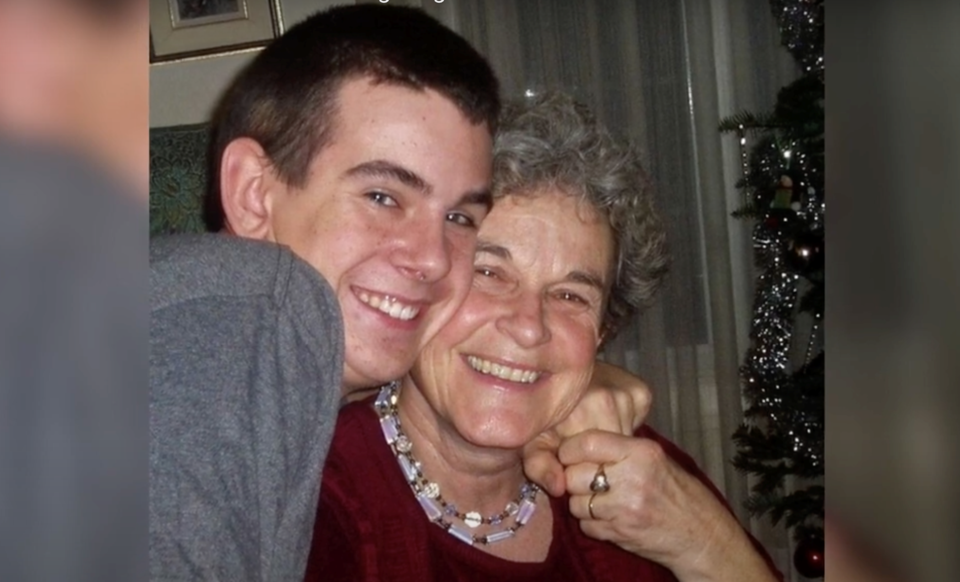Drug recovery homes and treatment centres in B.C. are operating with little or no government oversight despite getting funding from health authorities — a matter that requires an independent investigation, according to drug policy reform group Moms Stop the Harm.
“We're asking the government to look into the funding that a lot of recovery houses are receiving, to see if those funds are being used in an efficient and successful way. We are asking the government to have more oversight into recovery facilities, as there seems to be a lot of failures,” said the group’s co-founder and Pender Island resident Leslie McBain, who lost her 25-year-old son Jordan Miller to a drug overdose.
“There's a lot of questions that we have about an unregulated system of recovery that is subsidized in part by the government, but there is a big lack of oversight,” said McBain.
Moms Stop the Harm issued an open letter Thursday to B.C. Attorney General Niki Sharma and the B.C. government to strike an independent investigation.
The group said it is “alarmed that the provincial government continues to blindly fund an industry without addressing the countless allegations of abuse, sexual assault, and deaths of vulnerable clients that have been revealed at these programs.”
Sharma’s office did not respond to Glacier Media's request for comment by time of publication.
As the matter crosses many ministries, Minister of Mental Health and Addictions Jennifer Whiteside did field some media questions Thursday, in Victoria, as the group is also asking for a forensic audit of any treatment programs that have received government funding and face allegations of abuse and harm from clients.
“Certainly, we are working very closely with the recovery home sector on regulations. We inherited a system that had been privatized, deregulated, underfunded and we’ve worked over the last several years to improve regulation, to improve oversight through the contracting health authorities do with recovery homes,” said Whiteside.
Whiteside said recovery homes are moving in the direction of public oversight, citing 40 new beds under direct oversight by Vancouver Island Health Authority.
“Health authorities have hired more inspectors; we’re committed to ensuring the quality that is provided in supportive recovery homes is high, is evidence-based and connected to the work our health authorities are doing,” said Whiteside.
But McBain told Glacier Media any such improvements are not readily apparent and she hopes to learn more about them via a committee with the Overdose Emergency Response Centre.
Part of the problem, said McBain, is that there are no measurements to track success. Part of the group’s seven-point call to action is to empower the BC Coroners Service to track deaths that occur at treatment centres and recovery homes.
“Without adequate government oversight and regulation, the rapidly growing treatment and recovery industry is set on a dangerous path that will further endanger the lives of thousands of British Columbians,” the group stated.
At issue is oversight of contractors and staff.
McBain said she welcomes a mosaic of treatment options but added, "we want to see the staff be well-trained. It’s a very specific issue with people with addictions."
For example, the group noted New Westminster’s Last Door Recovery Centre contractor Adam Haber has been charged with three counts of sexual assault, last May.
And, as the industry appears set to only grow, McBain and the group have cited concerns of political interference, such as allegations clients at Baldy Hughes Therapeutic Community and Farm were allegedly coerced into making campaign calls for the BC United party, which was closely aligned with contractors at the Prince George facility.
The group has asked for “an independent investigation into any and all donations received by BC United and its staff from the treatment and recovery industry."
No one from BC United responded to Glacier media when it forwarded the letter, which was copied to Elenore Sturko, Whiteside’s critic/shadow minister.
Moms Stop the Harm favours a so-called “safe supply” of drugs, meaning a regulated supply of illicit drugs that ensure it is not poisoned by fentanyl and other toxins — the leading cause of overdose deaths."
Sturko has been campaigning against such a regulated supply.
The group has also asked Sharma for a "forensic audit to determine if any recovery house in B.C. is abusing shelter portions of income assistance cheques by evicting people just prior to cut off."



